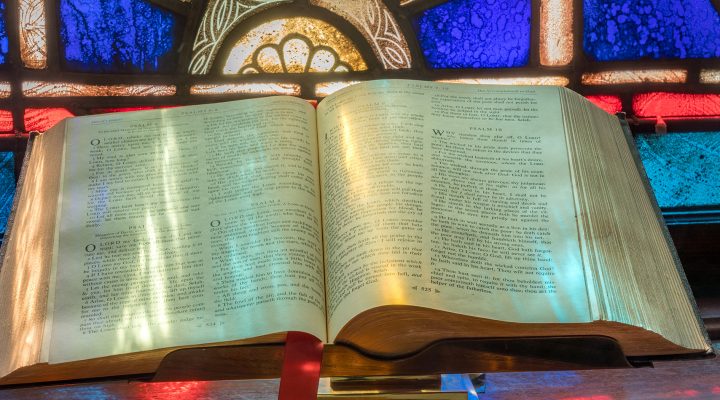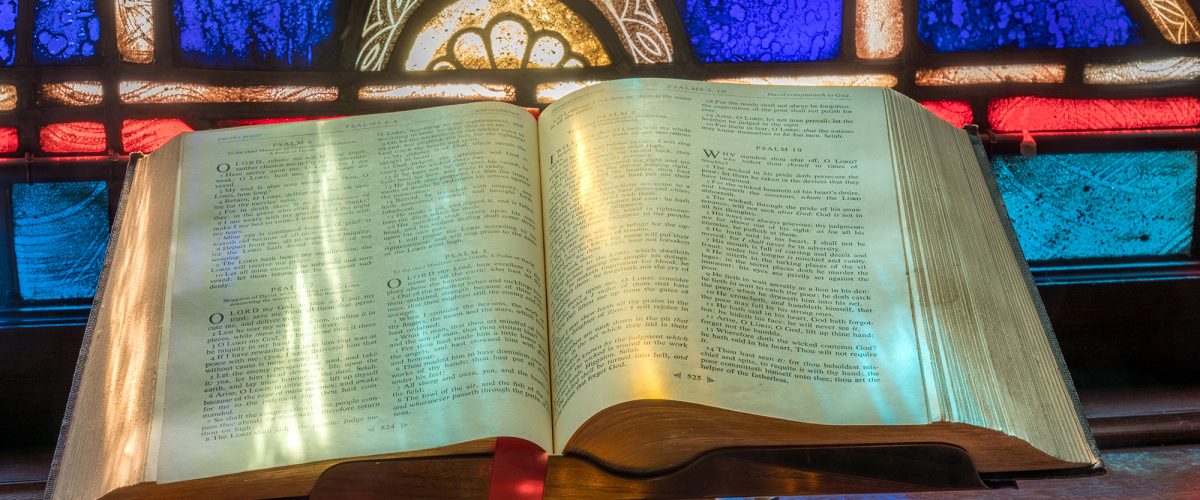I am more confident in my call to pastoral ministry because I know historic Baptist theology. The life, death and resurrection of Jesus, the outpouring of the Holy Spirit, and the common anointing for ministry are basic to Baptist thought and have helped me be more affirmed in my call from God as a woman serving as pastor of a Baptist church.
The life, death and resurrection of Jesus Christ are central to Baptist theology. The Lord of all creation came to us as a human to die an awful death on a Cross. Jesus Christ resurrected on the third day so we may have “life and life to the fullest.” Christ’s sacrifice and resurrection are the means to our eternal reconciliation with God and creation.

Maddie Rarick
It is this humble love of Christ that helps shape Baptist theology. Christ is our example because he is our Lord. We are called to sacrificially serve our brothers and sisters in Christ. In Scripture, Christ calls us not to “lord” power over others but to be servants to one another as Christ was to us.
Christ promised the Holy Spirit to his disciples when he was preparing to ascend to heaven after his resurrection. Acts 2 describes Pentecost, the outpouring of the Holy Spirit “on all people.” This passage quotes the prophet Joel saying, “Your sons and daughters will prophesy, your young men will see visions, your old men will dream dreams. Even on my servants, both men and women, I will pour out my Spirit in those days, and they will prophesy.”
All Christians are baptized in the Holy Spirit and called to participate in the proclamation of the gospel.
Complementary to Acts 2 is Galatians 3:28-29. Our common baptism means former divisions are futile. There is no longer “Jew or Greek; there is no longer slave or free; there is no longer male and female, for all of you are one in Christ Jesus. And if you belong to Christ, then you are Abraham’s offspring, heirs according to the promise.”
“All Christians are baptized in the Holy Spirit and called to participate in the proclamation of the gospel.”
These were not just social divisions within the churches in Galatia, they were more specifically social power divisions. Jews, as the direct descendants of Abraham, may have believed they held a certain power over and against Gentiles. Masters obviously held power over slaves and men power over women. In other words, our common baptism in Christ is meant to destroy these power divisions.
Another way in which Baptists have understood our equal call in Christ is through the “priesthood of the believer.” (See 1 Peter 2:9.) All Christians are called to equally participate in discipleship and ministry.
It is from this principle that all members of a Baptist church vote on churchwide decisions, why a Baptist cannot represent another Baptist and why Baptist churches do not have a hierarchy of clergy. Baptist polity is inherently congregational. Power is evenly distributed.
Many understand this to be “the priesthood of the believers” (plural as opposed to singular). In other words, it is the church, the community of believers, who together share in this priesthood. In either case, be it anointed individuals together or the community, this historic Baptist principle does not allow for a hierarchical model.
Baptist polity is developed from our theology.
Baptists do not have hierarchy in their denominations. To be a member of a denomination — be it the Southern Baptist Convention, Cooperative Baptist Fellowship or Baptist General Convention of Texas — is volitional for Baptist churches. It is a choice to affiliate. Baptist churches are not beholden to the denomination the way churches of other denominations may be.
Baptists do not have hierarchy within their own congregations. Power is distributed. While Baptist churches have pastors, those pastors do not have unilateral power over their church members. Power is distributed. When a churchwide decision is to be made, these decisions require a church decision with each member allowed to vote.
“The SBC’s most recent vote on women in church leadership is un-Baptist.”
The SBC’s most recent vote on women in church leadership is un-Baptist. The SBC voted to disallow women from serving in any pastoral role or as elders in any local congregation. The proposed constitutional amendment will need a second vote next year to be adopted, and there is little doubt it will pass. Yet this move goes against historic Baptist theology.
This path is decidedly complementarian in nature. Complementarianism espouses that men and women have different yet complementary roles in church and home. God has assigned specific gender roles, according to this view. With the SBC’s most recent vote, men are permitted to hold positions as pastors or elders, and women are not.
At the root of complementarianism is the issue of power — who has power in church and home and who does not. The power of one person over another is contrary to God’s ultimate plan for humanity and contrary to basic Baptist theology. Our common baptism in the Holy Spirit means all are called to proclaim the gospel. Our common priestly call means we share in the ministry of the church. Our common Lord means we each are recreated to serve one another in humble love.
I grew up Baptist by chance. Neither of my parents grew up Baptist or had any denominational loyalties. They found a church with thoughtful, biblical preaching and godly people. That church happened to be Baptist.
It was not until I went to college at a small Baptist university that I began to really wonder why I was Baptist. I went there to receive a theological education in pursuit of being a pastor. If I was going to serve as pastor of a Baptist church, I figured it would be wise to know what Baptists traditionally believed.
It was learning Baptist theology in both undergraduate and graduate school where I fell in love all over again with a gospel that creates this kind of community. As I was discerning my call to ministry in school, I felt more affirmed in my call because I was Baptist. It is not antithetical to be a female pastor and be Baptist. It is perfectly in line with historic Baptist theology.
Maddie Rarick serves as pastor of Meadow Oaks Baptist Church in Temple, Texas. A native of Sugar Land, Texas, Rarick completed a bachelor of arts degree in Christian studies at the University of Mary Hardin-Baylor and a master of divinity degree at Truett Seminary. She then was selected to receive the Parish Pulpit (Graduate Preaching) Fellowship from the University of Edinburgh in Scotland, where she earned a master of theology degree.
Related articles:
The Southern Baptist Convention is wrong | Opinion by Meredith Stone
Saddleback and Fern Creek churches face off against Al Mohler at SBC meeting
Anti-egalitarian forces make clean sweep at SBC annual meeting | Analysis by Mark Wingfield


